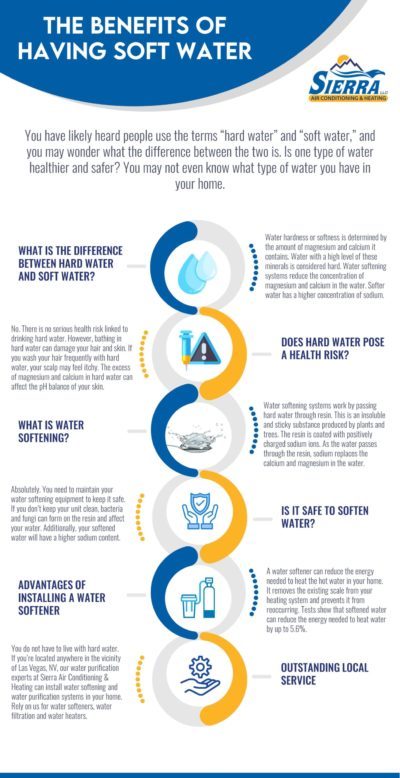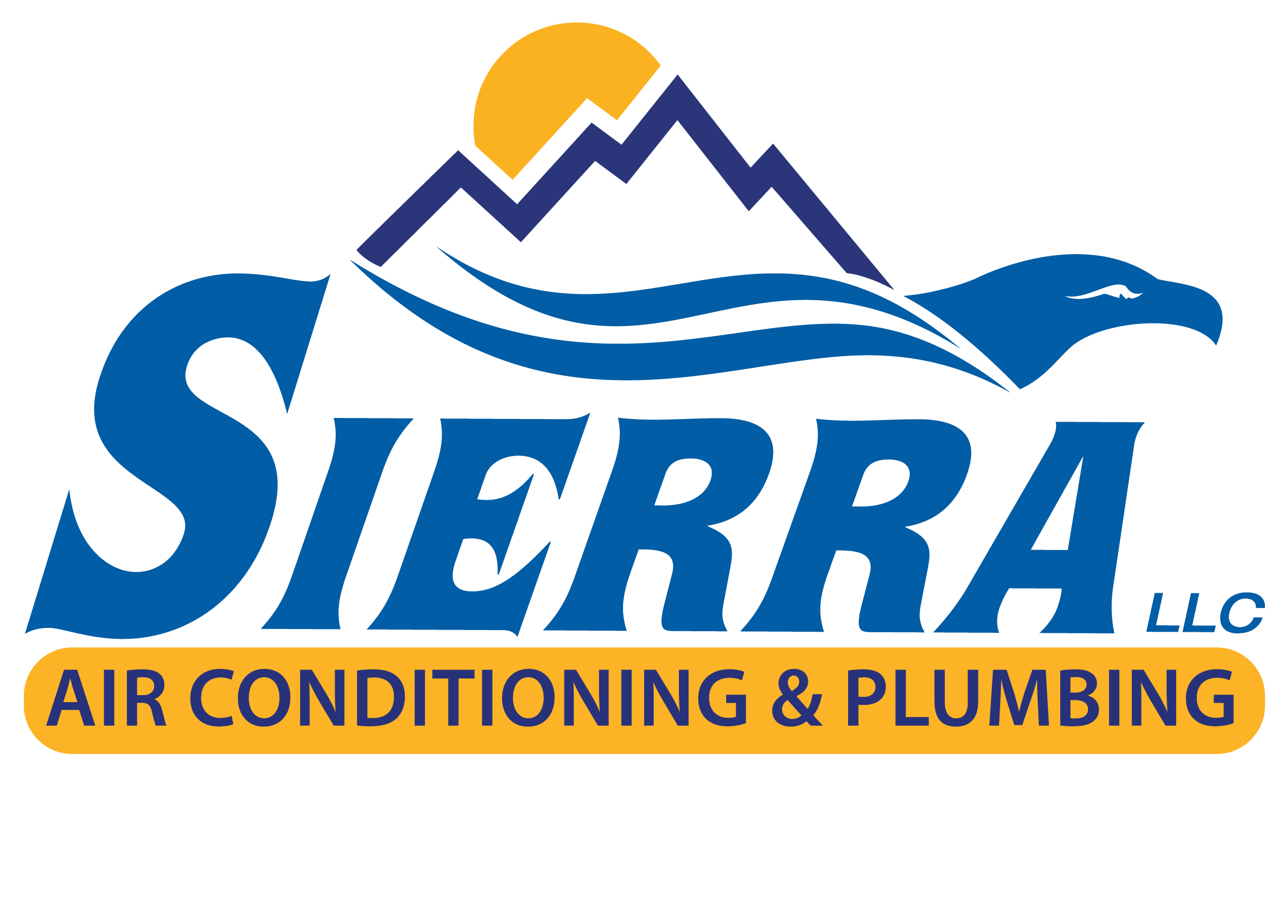You have likely heard people use the terms “hard water” and “soft water,” and you may wonder what the difference between the two is. Is one type of water healthier and safer? You may not even know what type of water you have in your home.
The water that comes out of your faucet is probably crystal clear. However, it contains several chemicals and minerals. The concentration level of these minerals determines the hardness of the water.
What Is the Difference Between Hard Water and Soft Water?
Water hardness or softness is determined by the amount of magnesium and calcium it contains. Water with a high level of these minerals is considered hard. Water softening systems reduce the concentration of magnesium and calcium in the water. Softer water has a higher concentration of sodium.
You can’t tell just by looking at it if water is hard or soft. However, the feel of the water and the residue it leaves on your appliances or your dishes can indicate the type of water you are dealing with.
Hard water leaves a feeling of film on your hands after you have washed them. This is because the soap and calcium react to each other, forming soap scum. You may need to rinse your hands multiple times if you live in a home with hard water.
Spots may appear on your silverware or glasses when they come out of the dishwasher. These are typically calcium carbonate deposits.
Mineral stains may show up on your clothes when you take them out of the washing machine. Or you may find that your clothing is wearing out faster because of hard water. Hard water can affect water pressure because mineral deposits may form in the pipes, and this will shrink the pipes’ interior diameter.
Hard water is measured by parts per million. Zero – 50 PPM is considered soft water. Moderately hard water is 151 – 200 PPM. Anything above 350 PPM is considered aggressively hard water.
Does Hard Water Pose a Health Risk?
No. There is no serious health risk linked to drinking hard water. However, bathing in hard water can damage your hair and skin. If you wash your hair frequently with hard water, your scalp may feel itchy. The excess of magnesium and calcium in hard water can affect the pH balance of your skin. This is especially dangerous for those who have eczema. If you notice that your skin and hair are dry, you may want to consider purchasing a water softening system for your home.
What Is Water Softening?
Water softening systems work by passing hard water through resin. This is an insoluble and sticky substance produced by plants and trees. The resin is coated with positively charged sodium ions. As the water passes through the resin, sodium replaces the calcium and magnesium in the water.
Water softening units need constant maintenance. You need to purchase sodium pellets to keep the resin adequately charged. Some units may use citric acid, magnets or potassium pellets to reduce magnesium and calcium in the water.
In a water softener, hard water travels through a cylinder with resin beads. These beads are packed with sodium ions.
Magnesium, calcium and other minerals interact with the resin, swapping the sodium ions with the magnesium and calcium ions. The water that then travels through your home’s pipes is charged with sodium ions.
Water softeners can soften a predetermined amount of water before they reach their maximum capacity. This is when their sodium ions have been completely exchanged for calcium and magnesium ions.
Once the maximum capacity is reached, a salty brine solution runs over the ion exchange resin, recharging the sodium ions and flushing out hardness minerals. When the process is reset, the system is ready to start softening water again.
Is It Safe to Soften Water?
Absolutely. You need to maintain your water softening equipment to keep it safe. If you don’t keep your unit clean, bacteria and fungi can form on the resin and affect your water. Additionally, your softened water will have a higher sodium content. If you are on a sodium-restricted diet, it is good to talk to your installer to find out how much sodium is added to your water.
Advantages of Installing a Water Softener
As hard water enters your house, it leaves behind a residue that can cause scale to form on the surfaces it comes into contact with. When you soften your water, you remove residue-causing minerals from the water.
A water softener can reduce the energy needed to heat the hot water in your home. It removes the existing scale from your heating system and prevents it from reoccurring. Tests show that softened water can reduce the energy needed to heat water by up to 5.6%.
With time, a water softener will remove the scale from your pipes, surfaces and fixtures like those in your sinks and showers. With soft water running through fixtures and appliances, they will not need to be replaced as quickly as they would with hard water running through them.
Your skin and hair will thank you for using soft water. Many people who have installed a soft water treatment unit report that their dry scalp disappears. When you use soft water, you get just as clean but need less soap. Soft water is better for people who have eczema or other skin conditions.
Hard water will clog up your showerhead. You will find yourself sticking toothpicks in the showerhead every few months to open it up. With soft water, all that accumulation disappears and stays away permanently.
Washing clothing with soft water makes your clothes feel cleaner and softer. White clothes stay whiter, and softened water will extend the fabric’s life. You will also need to use less detergent to get your clothes clean.
With softened water, you will spend less time and money on cleaning. You won’t have to worry about removing limescale, there won’t be soap scum marks on your taps and you will find yourself using less of various cleansing products to keep your home looking nice.
Shaving feels so much better with softened water. Razor blades will last longer, and the quality of your shave will feel a lot smoother.
Washing your car with soft water makes it quick and easy to wash and rinse. You don’t have to lather your vehicle after cleaning it. This is why most professional car washing companies use soft water.
Finally, soft water is good for the environment. After installing a water softener, the number of chemicals and cleaning products you use in your home will drop dramatically. As a side effect, you will be protecting rivers and streams from chemical poisoning.
Outstanding Local Service
You do not have to live with hard water. If you’re located anywhere in the vicinity of Las Vegas, NV, our water purification experts at Sierra Air Conditioning & Plumbing can install water softening and water purification systems in your home. Rely on us for water softeners, water filtration and water heaters. We also handle heating, cooling and indoor air quality installation, repair and maintenance. We’ve been doing this for over 30 years, so you know you can trust us get the job done right. Contact Sierra Air Conditioning & Plumbing today. We look forward to working with you.




